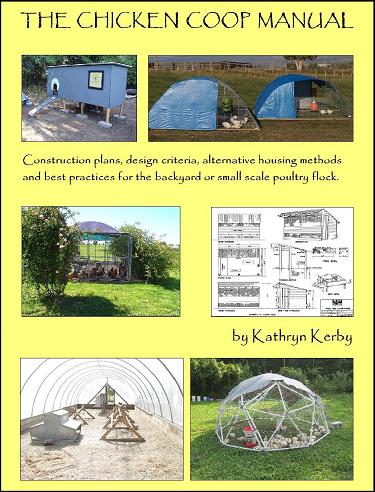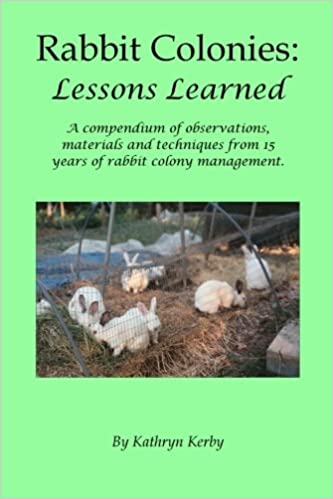Look Well To The Other Horse
January 27, 2011

Spent the day today exploring a new relationship. Rather, a new dimension of an existing relationship.
A friend and fellow grower has a wonderful market farming setup, but no time this year to do her growing tasks. I have time this year, but I don't yet have that infrastructure on my own place. So we're hitching our efforts together this year, so we can both have the benefit of the other's assets, and hopefully move forward as a team. I spent the day at her place, sorting seeds, getting planting trays ready, walking the property talking about where to put tomatoes, how to frame up new beds, and where everything will go in the greenhouses. I was so tired when I left, that I left behind my work boots. I didn't realize the mistake until I got home and realized I didn't have them. Since it was a choice of having them versus having cold muddy feet at evening chores, I got back in my truck and drove down to her place again to get them. Mercifully, she met me halfway. We both laughed about it, which was easier and more pleasant than cussing about it. But the cussing was not far below the surface.
It's a delicate balance, this partnership thing. It's sort of like a marriage, where we need to put aside some of our own preferences or schedules in favor of whatever the team entity needs us to do. For me, that means getting in the truck and driving 20 miles to her place two or three times a week, so that I can work in her greenhouse, plant in her tilled ground, and tend the vast array of plants we will be marketing this year. All under her more educated eye. For her, she needs to show me once how to do something, then trust that I'll do it the way she needs me to do it while she's working on something else. It means opening up her home and her workplace to the presence of another person, even on those days she'd prefer to work alone. For both of us, it means shifting how, when and where we do things, for the sake of a project neither of us could manage this year by ourselves.
The costs of goofing up are high. To start with, we're good friends. But many good friends have parted ways after sharing a project, a workplace, an apartment, or some other event that forces them to be together beyond purely social events. I already have several friends whom I love dearly, but I'd hate to live with them. And they'd hate to live with me. Our habits and our preferences are just too different. When friends can disengage from those uncomfortable arrangements, the friendship can be saved. But our partnership is, by necessity, for the duration of the growing season. Our eagerness for the coming season may morph into mere tolerance, then impatience for the year to end already. Hopefully, it won't become a gritting of teeth trying to endure each other's company until we've sold that last tomato.
As high as the potential costs, the payoff can be even higher. From my perspective, she is not only a friend but also a mentor. I can learn more from her in six months than I ever could working by myself for the next several years. She's already been where I'm going, and can help me chart a more efficient course to get there, thus avoiding all the potholes she found during her own journey. I can't forget how much blood, sweat and tears she'll be saving me along the line. As for her perspective, I can only guess that she's not yet had a willing student to listen to her advice. She has commented before how frustrating it is to see young growers get started, only to crash and burn through mistakes she could have helped them avoid. So I hope I'm as good a student as she deserves, and I hope she's as good a teacher as I need. This year will certainly be a test of both. Hopefully we'll get through the year with patience, humor, and a continued sense that we're each helping the other accomplish what we individually could not accomplish alone.
There's an old teamster phrase that says "before you hitch up to a team, look well to that other horse." In other words, a team can't function if either team-member isn't pulling their fair share of the load. I believe this team I've just joined will work out well, but it'll take work to do so. Here's to the both of us finding a way to pull together.
Our Successful Farming and Ranching Books

We released our very first self-published book. The Chicken Coop Manual in 2014. It is a full color guide to conventional and alternative poultry housing options, including 8 conventional stud construction plans, 12 alternative housing methods, and almost 20 different design features. This book is available on Amazon.com and as a PDF download. Please visit The Chicken Coop Manual page for more information.

Rabbit Colonies: Lessons Learned
We started with rabbits in 2002, and we've been experimenting with colony management ever since. Fast forward to 2017, when I decided to write another book, this time about colony management. The book is chock-full of practical information, and is available from both Amazon and as a PDF download. Please visit the Rabbit Colonies page for more information.
The Pastured Pig Handbook
We are currently working on our next self-published book: The Pastured Pig Handbook. This particular book addresses a profitable, popular and successful hog management approach which sadly is not yet well documented. Our handbook, will cover all the various issues involved with pastured hog management, including case studies of numerous current pastured pig operations. If you have any questions about this book, please Contact Us.

Weblog Archives
We published a farm blog between January 2011 and April 2012. We reluctantly ceased writing them due to time constraints, and we hope to begin writing them again someday. In the meantime, we offer a Weblog Archive so that readers can access past blog articles at any time.
If and when we return to writing blogs, we'll post that news here. Until then, happy reading!




